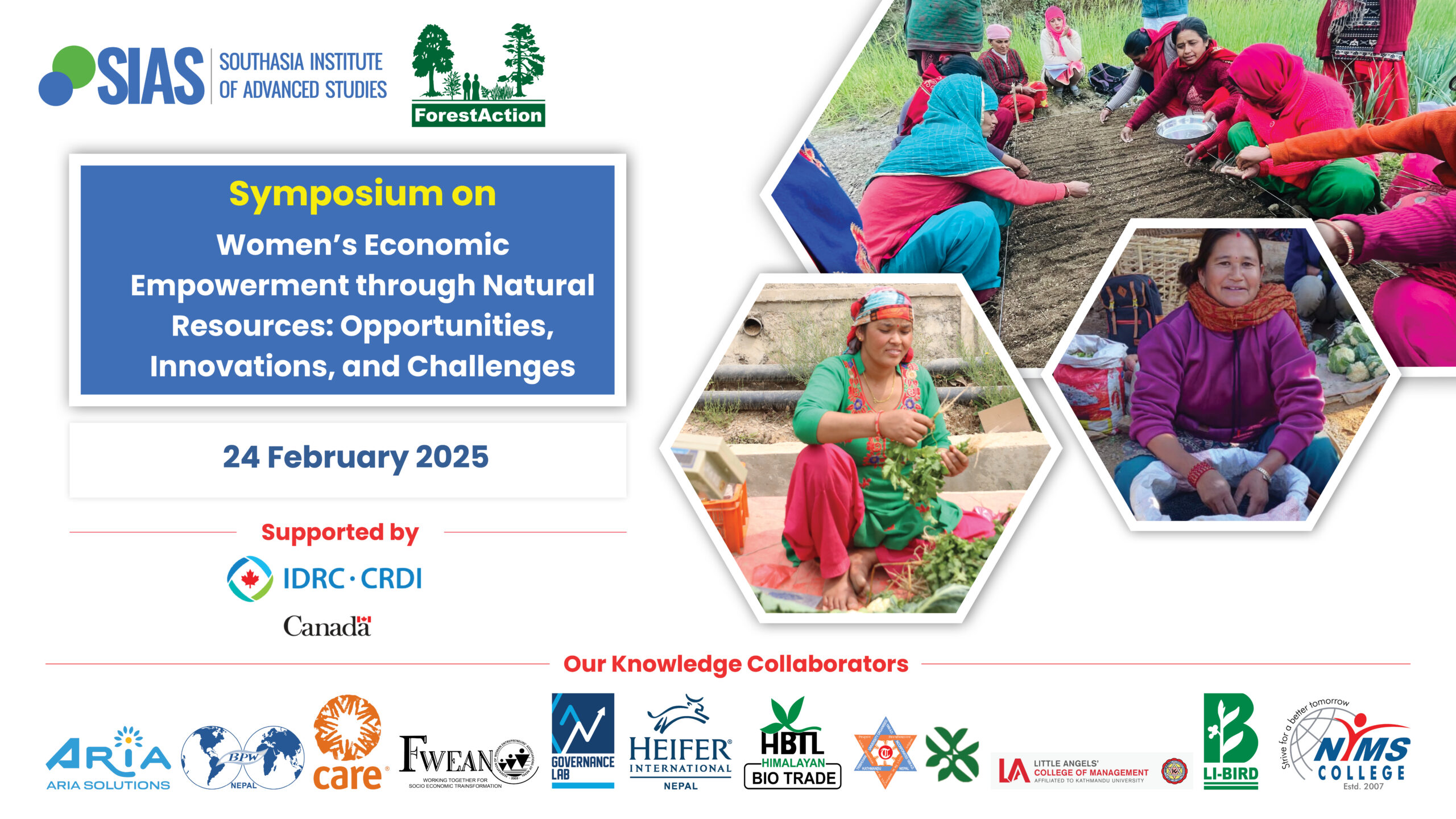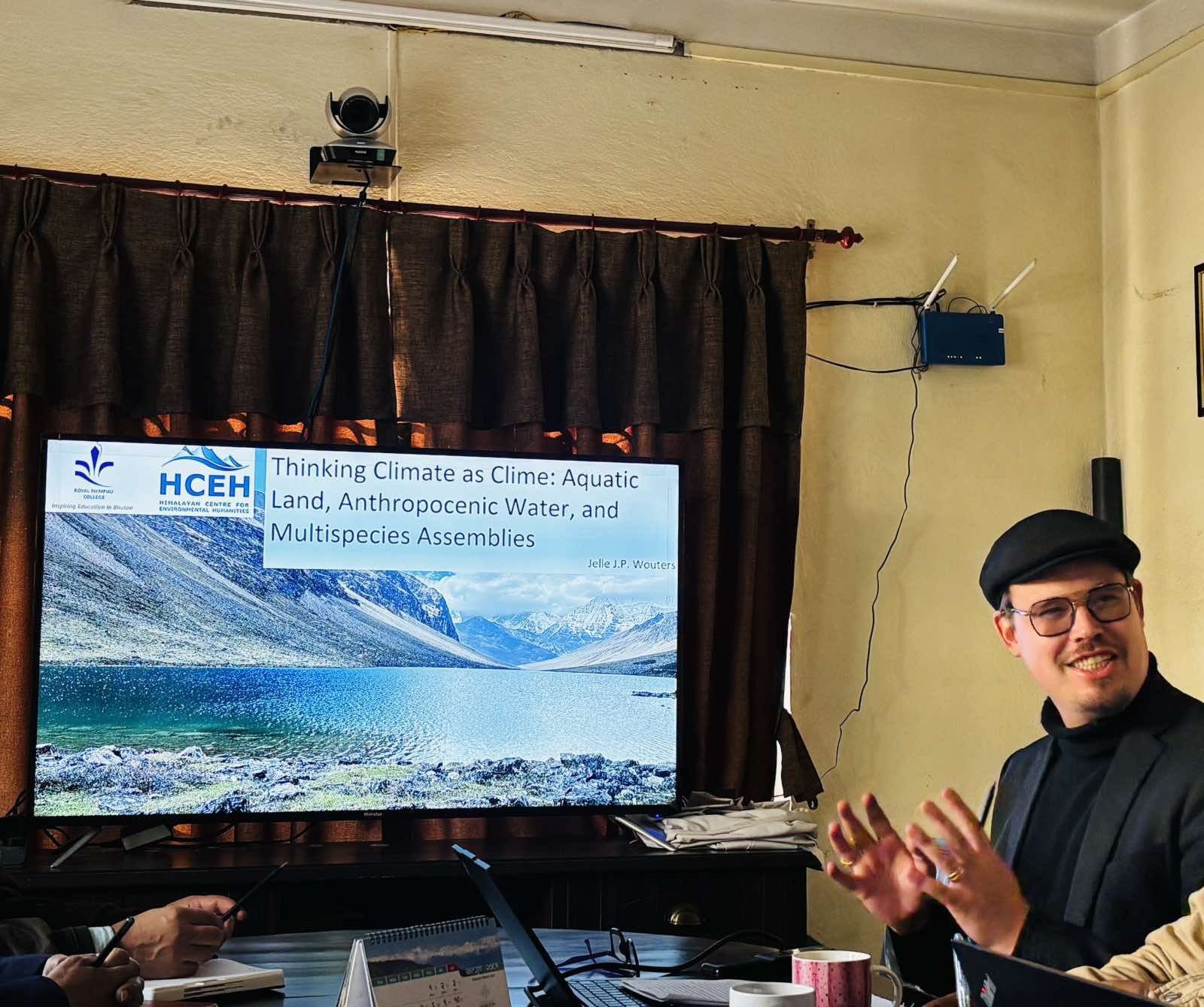The seventh seminar of the series “Himalaya, Climate Change and Development” was organized on Nov 3, 2014 (2:00-4:00 PM) at Local Development Training Academy (LDTA), Jawalakhel.
Meena Kunwar, Senior Climate Change Expert in Nepal Climate Change Support Program delivered the seminar on the topic “Challenges and opportunities of localizing climate change adaptation in Nepal: experiences from LAPA (Local Adaptation Plan for Action) implementation in Nepal“.
Meena Kunwar has been working in the field of NRM and development with commitment to bring positive impact on the livelihoods of poor and vulnerable groups. She holds a Master’s Degree in Environmental Science from the Australian National University, Australia. After successfully completion of Humphrey Fellowship Programme from University of California Davis, USA, she focused her work on climate change adaptation and mitigation. She has been engaged in different CC related project design and implementation. Her engagement with LAPA work started during the LAPA pilot study and LAPA framework development. Currently she is working as a Senior Climate Change Expert in Nepal Climate Change Support Programme, which is implementing LAPA in 14 districts of Nepal. In addition, she focuses on policies related to climate change adaptation and climate financing. She is committed to contribute on promoting gender equality and social inclusion. Her research interest is to identify and institutionalize simplified mechanism to enable Nepal in brining climate funds accessible to the vulnerable people on ground – which the LAPA has been demonstrating as a promising potential avenue and NCCSP is providing learning opportunity for its establishment.
This seminar is part of British Academy supported initiative, the key aims of which are to enhance capacity in the partners on political transition and environmental change research, to understand the role of research in conflict resolution, and to train a new generation of Nepali and UK scholars equipped with research expertise for tackling complex social-environmental issues
Seminars are held approximately every two months over a 24 month time frame.
[Note: Participation by Invitation only]
- First Seminar on: “Introduction to Political Transition and Climate Change” was organised on June 28, 2013 (2:00-4:00 PM) at Local Development Training Academy (LDTA Hall), Jawalakhel. The seminar was presented by Dr. Andrea Nightingale.
- The second Seminar on: “Mainstreaming Climate Change in Sustainable Mountain Development: Relections from ICIMOD’s Experience” was organised on Aug 27, 2013 (2:00-4:00 PM) at Local Development Training Academy, Jawalakhel. The Seminar was presented by Dr. Madhav Karki
- The third Seminar on “Poverty, vulnerability, livelihoods, climate adaptation and disaster risk reduction: concepts, issues and practical tools” was organised on Oct 31 (2:00-4:00 PM) at Local Development Training Academy, Jawalakhel. The Seminar was presented by Dr. Bharat Pokhrel.
- The fourth seminar on “Climate Change, Water and Policies: Some reflections on changing web” was organized on Dec 24, 2013 (2:00 PM) at Local Development Training Academy (LDTA). Ajay Dixit from Institute of Social and Environmental Transition (ISET) Nepal delivered the seminar.
- A seminar workshop on ”Writing for change:” pursuing social science in times of transition in Nepal” was organised on Jan 30, 2014 (9:30 am-5:00 pm) at Yala Maya Kendra, Patan Dhoka, Lalitpur. The seminar delivered by Andrea Nightingale, Krishna K Shrestha, Hemant Ojha, Hari Sharma, Ajay Dixit, Jhalak Subedi, Deepak Thapa, Naya Sharma, Netra Timsina.
- Fifth seminar on ”What drives transformations in climate change governance” was organized on April 23, 2014 (2:00 PM) at at Local Development Training Academy(LDTA), Jawalakhel. the seminar was presented by Adam Pain.
- Sixth seminar of the series “Himalaya, Climate Change and Development” was organized on August 5, 2014 (9:30-11:30 AM). Manohara Khadka delivered the seminar on the topic “Political transition and gender integration in climate change adaptation in Nepal: Everyone’s agenda and no one’s agenda.”




